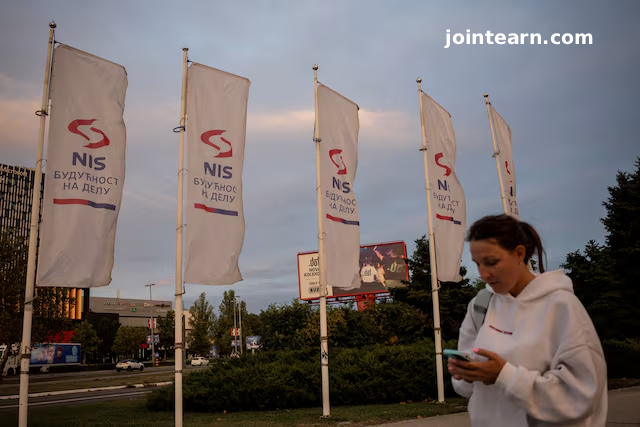
Belgrade, November 15, 2025 – Serbia has successfully secured a three-month reprieve for the Russian-owned oil firm NIS (Naftna Industrija Srbije), which is currently under U.S. sanctions. The temporary exemption comes at a critical time as the country faces potential fuel supply challenges ahead of the winter season, according to a senior government official.
NIS, in which Russian energy giants Gazprom Neft and Gazprom hold a controlling stake of 56%, has been directly affected by sanctions imposed by the U.S. Treasury’s Office of Foreign Assets Control (OFAC). The sanctions initially targeted Russia’s oil sector in January but were delayed for NIS until October 8, 2025, after repeated postponements.
Background: NIS, Gazprom, and U.S. Sanctions
Serbia’s government announced earlier this week that Gazprom Neft and Gazprom had formally requested the U.S. Treasury to grant a waiver. The companies expressed willingness to transfer control of NIS to a third party to comply with OFAC regulations. This strategic move has temporarily shielded Serbia from potential energy shortages, particularly important as winter demand peaks across the country.
NIS operates Serbia’s only oil refinery and plays a critical role in the nation’s energy infrastructure. With Gazprom Neft and Gazprom holding majority shares, any disruption due to sanctions could have had severe consequences for Serbia’s fuel availability and domestic energy stability.
Implications for Serbia’s Energy Security
The three-month waiver provides crucial breathing room for Serbia to explore long-term solutions, including potential restructuring of ownership or finding new investors to reduce dependence on Russian-controlled energy assets. Energy analysts emphasize that while this reprieve ensures short-term stability, Serbia must develop a diversified energy strategy to mitigate future geopolitical risks.
The Serbian government continues to monitor developments closely, working in coordination with U.S. authorities to maintain compliance while securing essential fuel supplies for its citizens.
Looking Ahead: NIS and Regional Energy Markets
This extension also has broader implications for regional energy markets. NIS’s operational stability affects not only Serbia but also neighboring Balkan countries that rely on its fuel distribution networks. Analysts predict that securing a long-term resolution with OFAC could set a precedent for other Russian-owned firms facing similar sanctions.
Serbia’s proactive engagement with both Russian stakeholders and U.S. authorities highlights the delicate balance countries face in managing energy security amid geopolitical tensions.


Leave a Reply